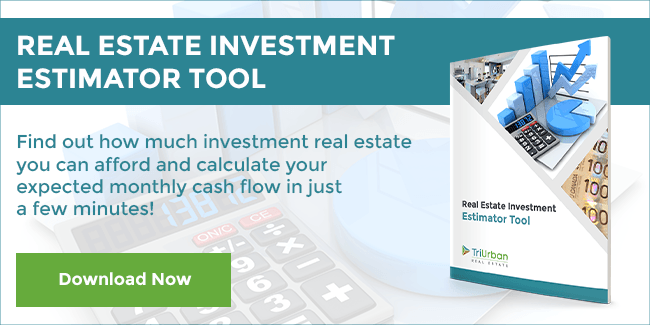 Once you’ve decided that you’re going to start investing in real estate, you need to understand your financing parameters. In some ways, qualifying for investment property financing isn’t much different than qualifying for a residential home purchase. In other ways, it can be a lot more challenging.
Once you’ve decided that you’re going to start investing in real estate, you need to understand your financing parameters. In some ways, qualifying for investment property financing isn’t much different than qualifying for a residential home purchase. In other ways, it can be a lot more challenging.
Fortunately, we were able to sit down with our good friend Mike Wharmby from Innovative Mortgage Solutions and we’re here to break down the process for you so you can get a better sense of what you need to do.
What’s the Difference Between a Regular Home Mortgage and an Investment Property Mortgage?
While they’re broadly similar in terms of the process, there are a few key differences.
One of the main ones is whether or not the home you’re buying will be owner-occupied. If you’ll be living in your investment property (for example, buying a single home with a legal basement suite and renting it out) then you can put as little as 5% down on the mortgage. If you won’t be living on the property and it is a pure investment, you’ll have to put down the full 20% down payment.
Where Can The Down Payment For an Investment Property Come From?
The rules about down payments have become more relaxed in recent years, opening up a lot of new potential avenues for investors. As well as the more traditional routes of gathering a down payment such as a loan, a HELOC or just cash you have available, you can also get your down payment from a regular line of credit or other paper investments.
If you have enough equity, you can even use a secured line of credit on your personal residence to generate a down payment for an investment property. This can be especially useful because it means you’re financing your investment property with hardly any of your own money (other than the interest portion of the loan)!
Talk to someone who knows. Schedule a time to speak with a broker that specializes in financing investment properties. It could make all the difference moving forward.
 What’s a Debt Coverage Ratio and Why is it Important?
What’s a Debt Coverage Ratio and Why is it Important?
Investors also need to demonstrate to a lender that the property will be profitable. Just as we as the investor want to make sure the property will cash flow, so does the lender.
Most lenders will want to see a DCR of around 1.1% to 1.2%. In simple terms, a Debt Coverage Ratio is the amount of income you’ll be making in rent divided by the costs associated with running the property. So for example, if the expenses to a property are $1,000 per month, the income from that property will need to be $1100 per month for a 1.1 DCR and $1200 for a 1.2 DCR.
The exact amount of Debt Coverage Ratio required varies from lender to lender and can depend on your situation. For example, if you own multiple properties and some have less than a 1.1 Debt Coverage Ratio, a lender might just judge this as a simple pass/fail and decline to offer you the loan. Others might take it on more of a case-by-case basis. This is a situation where it’s helpful to work with a mortgage broker, as they can help you find the perfect lender for your needs.
What Kind of Proof of Income Will I Need To Provide?
How will you pay the mortgage when the property is vacant? You’ll need to pay for it out of your own pocket, which is why the lender will want to see proof that you are able to support the debt if needed.
Often, the lender will allow you to add some or all of the estimated rental income to the equation, which can allow you to qualify for more money. Before you borrow too much, though, you need to remember that you’re still responsible for the payment when you don’t have a tenant.
Qualifying for a mortgage for your first investment property seems complicated at first, but setting up your financing properly from the start could allow for continued financing of acquisitions. We are happy to answer any questions you may have.
